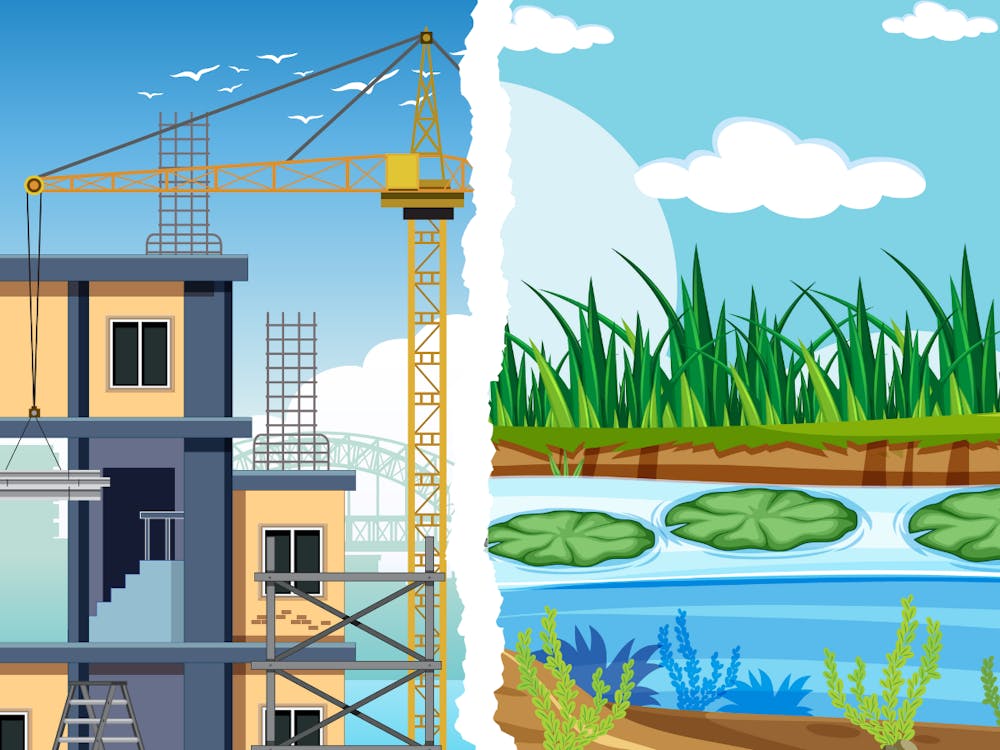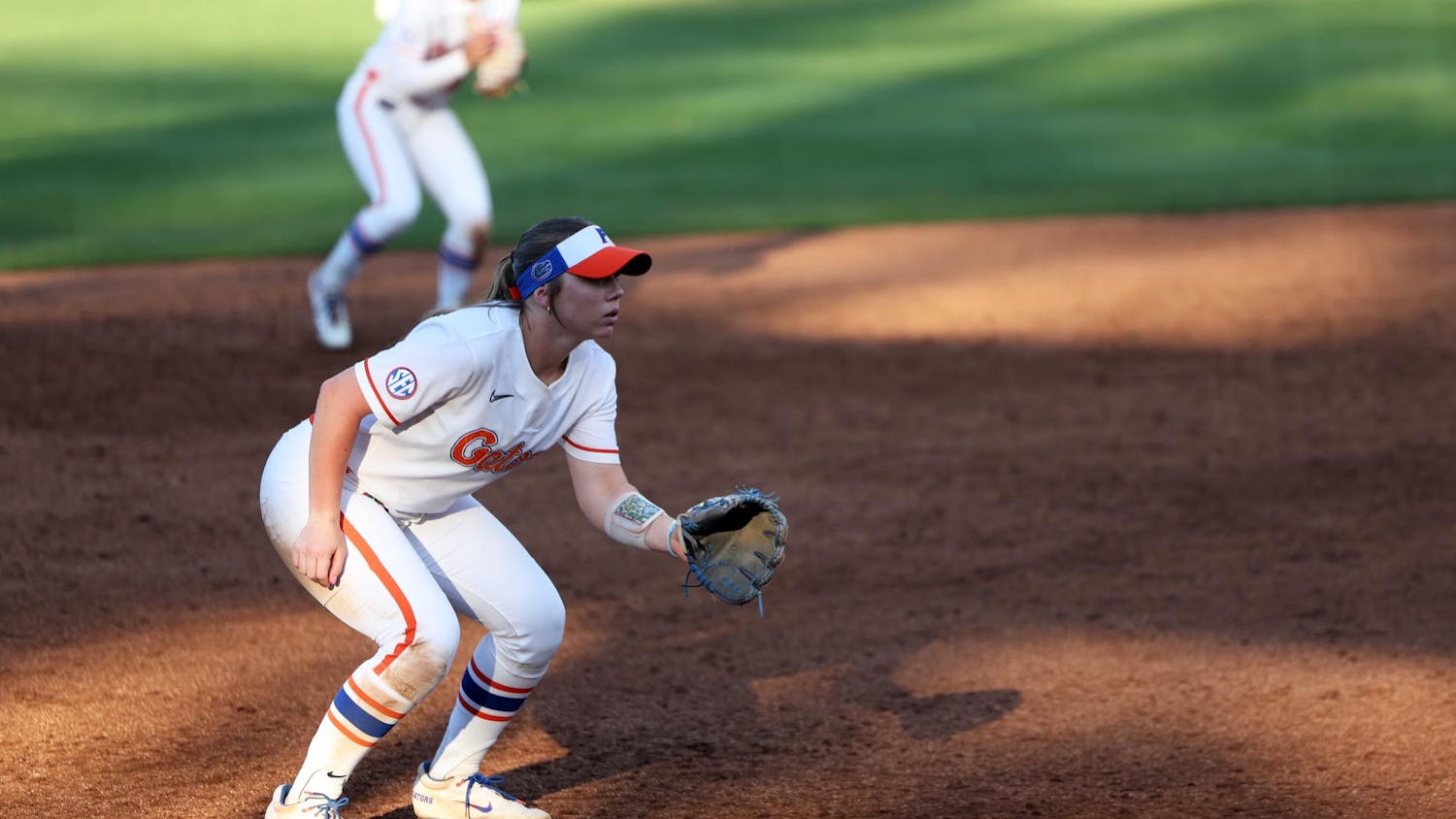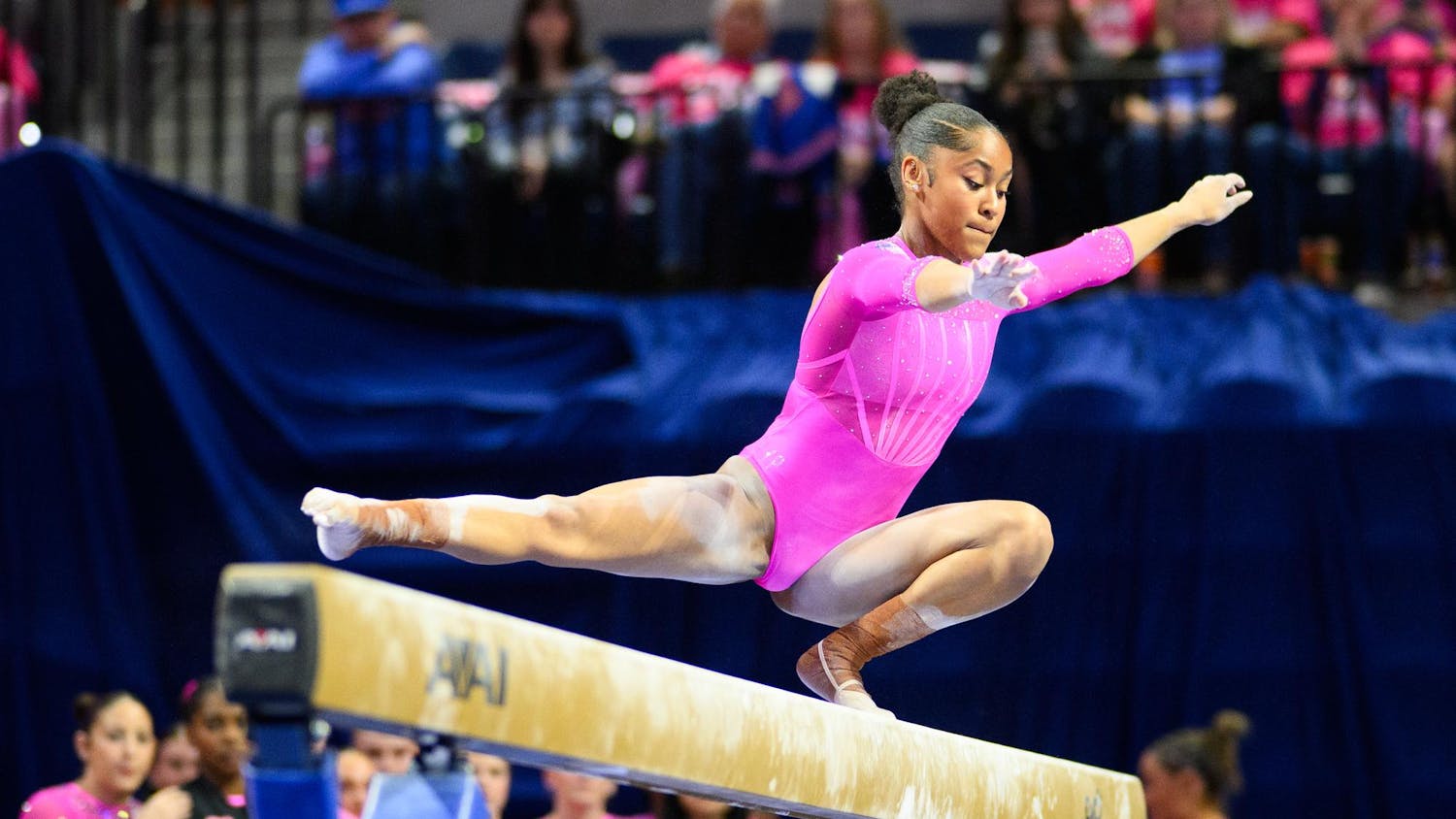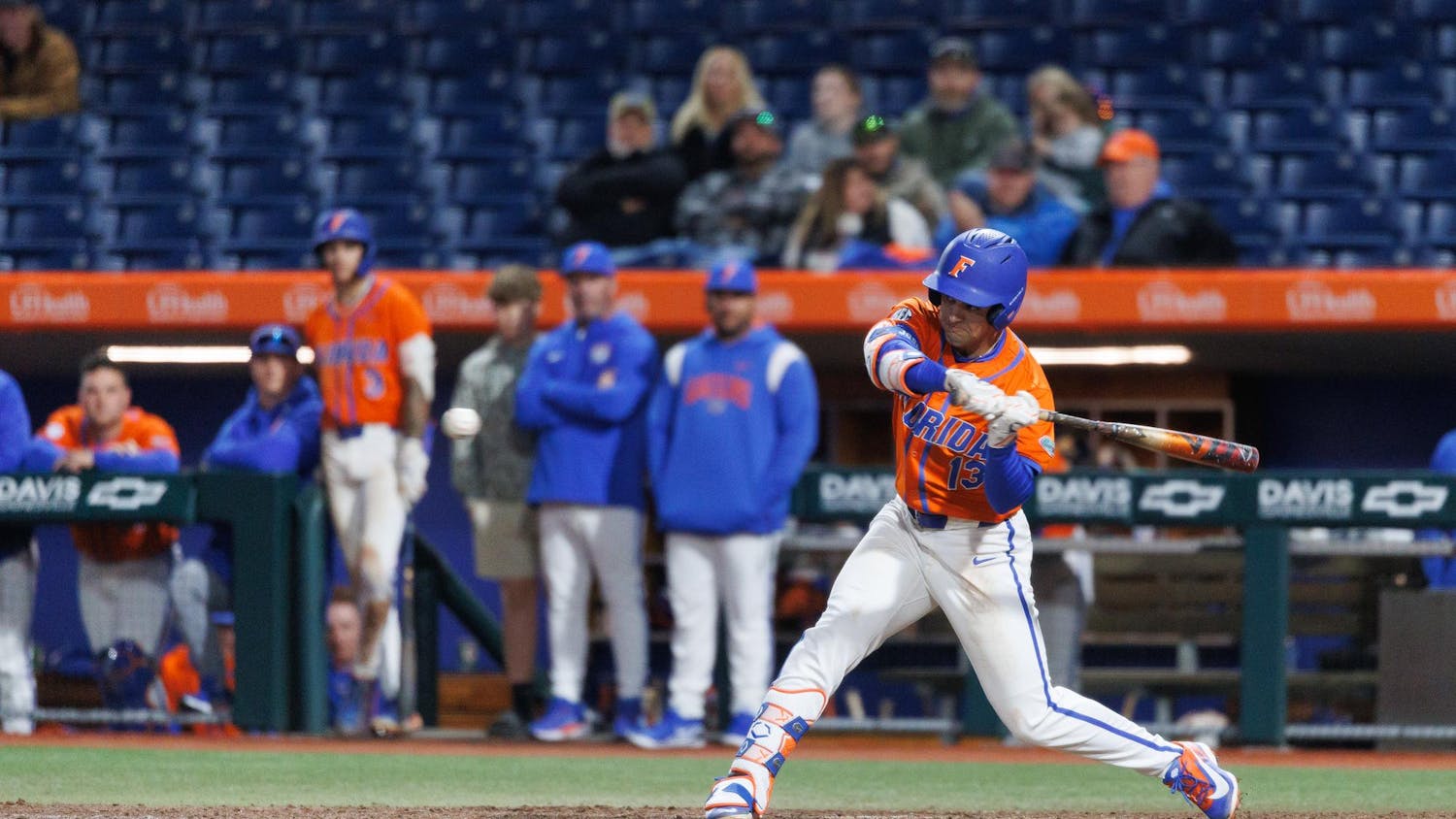Florida’s only wild bison roam the savanna of Paynes Prairie State Park, but a proposed housing development has environmental scientists concerned for the future of the park’s endangered species.
American bison, which are native to Florida, were once a staple in the United States. Commercial hunting and habitat loss brought the species to extinction in Florida by 1830. To restore the population, 10 Nebraska bison were brought to Paynes Prairie State Park in 1975.
Around 50 to 70 genetically pure bison reside in the park following a statewide effort led by the Florida Park Service to restore the state’s natural landscapes and wildlife. The bison roam over 22,000 acres of parkland with little to no human contact.
Maronda Homes LLC, a residential construction company, requested a zoning change to subdivide 73 acres of land to build 134 single-family homes. About 24 of the 73 proposed acres would be developed, leaving the remaining acres open.
Micah Hébert, a 39-year-old environmental science teacher at Palm Beach Central High School, said he was concerned about the potential development’s impact of light pollution on Paynes Prairie’s wildlife, especially its bison.
“They won’t be able to sleep,” Hébert said. “It’s going to affect their breeding patterns, their migration patterns. There’s a whole cascade of effects. If anybody questions that, just try to sleep with your lights on and tell me that doesn’t make a difference.”
Animals typically follow the brightest light source in the night sky for navigation, especially during migration. Artificial lights used by residential areas can disorient animals, he said.
Development would likely impact the prairie’s ecosystem because light pollution will bleed “well beyond” the development’s square footprint, he said.
The prairie’s bison also attract tourists, and developments harming the bison could “sell out” public benefit, he said.
“That’s a heritage that is priceless,” Hébert said. “They almost went extinct, and we were able to save them. I’m not going to let them take out the bison twice.”
Florida’s bison aren’t the only species that could be harmed by light pollution.
Anna Mavrodieva, a 23-year-old Gainesville resident and environmental scientist, works with Alachua Audubon and Alachua Conservation Trust and is an outreach educator at the Florida Museum of Natural History.
Mavrodieva said she was concerned about other endangered species in the prairie, including the snail kite, a small bird that experienced population declines in the early 2000s.
Habitat fragmentation, a loss of groundwater recharge areas and an increase in polluted runoff can harm the prairie’s ecosystems, she said. Agricultural and urban runoff are major nonpoint sources of nutrients and contaminants in Florida waters.
The impact of light pollution could also draw a host of insects toward neighborhood light sources at night, in turn attracting frogs, snakes and other nocturnal animals that eat insects.
For example, drivers often hit frogs, snakes and opossums because they follow car headlights, she said.
“Even if they build the most ecologically sound subdivision, there will still be more issues than if it was just undeveloped,” Mavrodieva said.
She took issue with Maronda Homes being primarily based outside of Gainesville because it isn’t familiar with the natural area, she said.
Since 1940, one of the largest threats to biodiversity is housing development.
Mavrodieva made an Instagram post about the proposed development to express her dissent. The post has over 2,300 shares as of July 6.
“It’s a testament for how much people care about this issue,” she said. “It just took off among people who live in Gainesville who really care about the prairie and who just want to make sure our commissioners continue to prioritize our green spaces.”
Alachua County Communications Director Mark Sexton said the county is aware of Maronda Homes’ rezoning application.
“We have received the rezoning application,” Sexton said. “Staff will review and prepare a recommendation for the Planning Commission and for the Board of County Commissioners.”
It is unknown when the recommendation will be completed and reviewed. The next commission meeting is scheduled for July 8.
Contact Logan McBride at lmcbride@alligator.org. Follow him on X @logandmcbride.

Logan McBride is a journalism junior and a Spring 2026 track and field reporter. In his free time, he enjoys watching TV shows or playing basketball at Southwest Rec. He is also a big football fan and will die for Dak Prescott.






